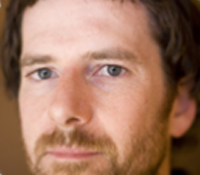Faculty Experiences with Technology-Enhanced Education at UC San Diego |
||
|
||
|
DESCRIPTION/ABSTRACT: The perspectives are those of four UC San Diego professors with experience in online education, talking about massive open online courses (MOOCs) and alternative forms of technology-enabled courses, as they ask the question: To MOOC, or not to MOOC? And what is the role of online education in the classroom, and the classroom's role in online education? Computer Science and Engineering as well as Cognitive Science professor Scott Klemmer was already building MOOCs while teaching at Stanford. He joined the UCSD faculty in 2013, and his UCSD Coursera course on "Human-Computer Interaction" kicks off June 30. Klemmer will moderate the discussion. Fellow CSE Prof. Pavel Pevzner taught a Coursera course on bioinformatics algorithms last fall. Skaggs School Prof. Williams Ettouati taught the first official UCSD course on Coursera, on drug discovery and commercialization. And Stephen Mayfield received at $50,000 grant from Google to create an online version of his classroom course introducing students to biofuels. The inaugural run of the course "Our Energy Future" on Coursera will launch in early June. SPEAKER BIO: Stephen Mayfield is Director of the California Center for Algae Biotechnology (Cal-CAB), Co-director of Food & Fuel for the 21st Century (FF21), and Professor of Molecular Biology at UC San Diego. His research focuses on the molecular genetics of green algae, and recombinant production of therapeutic proteins and biofuel molecules using algae as a production platform. First to achieve transformation of the C. reinhardtii nuclear genome, Steve’s work allowed this algae to become the dominant genetic organisms for studying photosynthesis and gene function. Steve’s lab identified mechanisms of chloroplast gene expression allowing for development of recombinant protein expression in algal chloroplast, and was first to show high levels of recombinant protein expression in algae. He is the principal investigator for the DOE funded Center for Algae Biotechnology Commercialization (CAB-Comm) and CEC funded California Initiative for Large Molecule Sustainable Fuels (CILMSF). Steve was also a scientific founder of Rincon Pharmaceutical, Sapphire Energy and Triton Algae Innovations, and is the head of Sapphire’s Scientific Advisory Board and the Chief Science Officer at Triton. Pavel Pevzner is Professor of Computer Science and Engineering at UC San Diego, where he holds the Ronald R. Taylor Chair and has taught a Bioinformatics Algorithms course for the last 12 years. In 2006, he was named a Howard Hughes Medical Institute Professor. In 2011, he founded the Algorithmic Biology Laboratory in St. Petersburg, Russia, which develops online bioinformatics platform Rosalind (http://rosalind.info). His research concerns the creation of bioinformatics algorithms for analyzing genome rearrangements, DNA sequencing, and computational proteomics. He authored Computational Molecular Biology (The MIT Press, 2000), co-authored (jointly with Neil Jones) An Introduction to Bioinformatics Algorithms (The MIT Press, 2004), and co-edited (with Ron Shamir) Bioinformatics for Biologists (Cambridge University Press, 2011). For his research, he has been named a Fellow of both the Association for Computing Machinery (ACM) and the International Society for Computational Biology (ISCB). Moderator: Scott Klemmer is an Associate Professor of Cognitive Science and Computer Science & Engineering at UC San Diego, and a Visiting Associate Professor of Computer Science at Stanford University. Before joining UCSD, he was an Associate Professor of Computer Science at Stanford University, where he co-directed the Human-Computer Interaction Group and held the Bredt Faculty Scholar development chair. Organizations around the world use his lab's open-source design tools and curricula; several books and popular press articles have covered his research and teaching. He helped introduce peer assessment to open online education, and taught the first peer-assessed online course. He has been awarded the Katayanagi Emerging Leadership Prize, Sloan Fellowship, NSF CAREER award, and Microsoft Research New Faculty Fellowship. He has authored and co-authored more than 40 peer-reviewed articles; eight were awarded best paper or honorable mention at the premier HCI conferences (CHI/UIST/CSCW). His former graduate students are leading professors, researchers, founders, social entrepreneurs, andengineers. He has a dual BA in Art-Semiotics and Computer Science from Brown University, Graphic Design work at RISD, and an MS and PhD inComputer Science from UC Berkeley. He serves on the editorial board of TOCHI and HCI, co-chaired the UIST 2011 program, co-chaired the CHI 2010 systems area, and has served on advisory boards for academic programs, research labs, and startups passionate about interaction design. |

